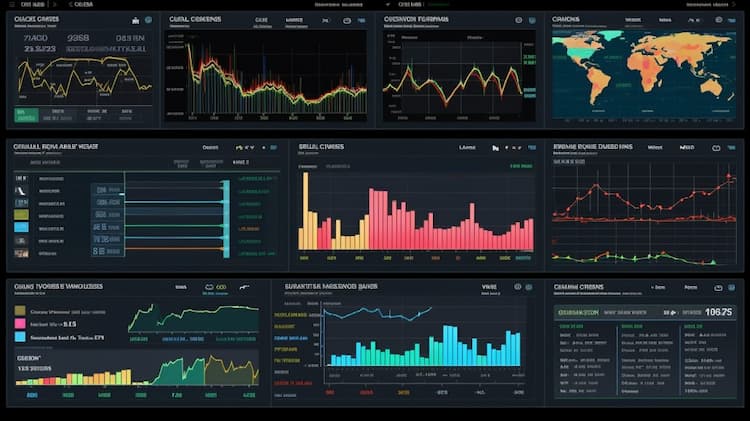
What is the underlying index that the AGG ETF aims to track?
ETFs (Exchange-Traded Funds) have become increasingly popular among investors due to their flexibility, diversification, and cost-effectiveness. One popular ETF is AGG, but many people wonder about the underlying index that it aims to track. In this article, we will delve into AGG's underlying index and answer some frequently asked questions about this financial instrument.
Understanding AGG ETF
The AGG ETF, also known as the iShares Core U.S. aggregate Bond ETF, is designed to track the performance of the Bloomberg Barclays U.S. aggregate Bond Index. This index represents the total U.S. investment-grade bond market, including Treasury securities, government agency bonds, mortgage-backed securities, corporate bonds, and more. AGG provides investors with exposure to a diversified portfolio of U.S. bonds, allowing them to gain broad market exposure and potentially benefit from the stability and income generated by these bonds.
To learn more about AGG's composition and holdings, you can visit the official website of iShares by BlackRock, the issuer of AGG: iShares website.
Benefits of Investing in AGG ETF
Investing in AGG ETF offers several advantages to investors. First and foremost, it provides diversification across various sectors of the U.S. bond market. This diversification helps mitigate the risk associated with investing in a single bond or bond issuer. Additionally, AGG has a low expense ratio, which means that investors can enjoy cost-effective exposure to a broad range of U.S. bonds. Furthermore, AGG provides investors with the potential for stable income and the opportunity to participate in the overall performance of the U.S. bond market.
For a comprehensive understanding of the benefits and potential risks associated with AGG ETF, you can refer to the prospectus available on the Securities and Exchange Commission (SEC) website: SEC website.
 AGG overlap What is the underlying index that the AGG ETF aims to track?
AGG overlap What is the underlying index that the AGG ETF aims to track?
Performance and Historical Data
Tracking the performance and historical data of an ETF is crucial for investors. By analyzing the past performance of AGG, investors can gain insights into its potential future performance. Various financial websites provide detailed information about AGG's performance, including historical prices, returns, and dividend distributions. One such reliable source is Yahoo Finance, where you can find an abundance of data and charts related to AGG: Yahoo Finance website(https://finance.yahoo.com/quote/AGG/).
Risks and Considerations
Like any investment, AGG ETF carries certain risks that investors should be aware of. Interest rate risk is one significant factor to consider, as bond prices tend to move inversely with interest rates. If interest rates rise, bond prices may decline, which could negatively impact AGG's performance. Additionally, investors should be mindful of credit risk, liquidity risk, and market risk when investing in AGG.
To understand the potential risks associated with AGG and other fixed-income ETFs, it is advisable to consult the official prospectus and offering documents provided by iShares: iShares website.
The underlying index that the AGG ETF aims to track is the Bloomberg Barclays U.S. aggregate Bond Index. By investing in AGG, investors can gain exposure to a diversified portfolio of U.S. investment-grade bonds, providing potential stability and income. However, investors should carefully consider the benefits, risks, and historical performance of AGG before making any investment decisions.
Disclaimer: We are not providing any investment advisory services.
Source 1: AGG issuer website
Source 2: Reuters article about AGG
AGG quote and analysis
Discover the top holdings, correlations, and overlaps of ETFs using our visualization tool.
Our app allows you to build and track your portfolio.
To learn more about the AGG iShares Core U.S. Aggregate Bond ETF, access our dedicated page now.
FAQ
What is the AGG ETF?
The AGG ETF, or iShares Core U.S. aggregate Bond ETF, is an exchange-traded fund that provides investors with exposure to the broad U.S. investment-grade bond market.
What is the underlying index that the AGG ETF aims to track?
The AGG ETF aims to track the performance of the Bloomberg Barclays U.S. aggregate Bond Index, which represents a diverse portfolio of U.S. investment-grade bonds, including Treasury, government-related, corporate, and securitized bonds.
What types of bonds are included in the AGG ETF?
The AGG ETF includes various types of bonds, such as U.S. Treasury bonds, government agency bonds, corporate bonds, mortgage-backed securities, and other high-quality fixed-income instruments issued in the United States.
How does the AGG ETF work?
The AGG ETF works by pooling investors' funds to purchase a diversified portfolio of bonds that closely replicate the performance of the underlying index. The ETF aims to provide exposure to the broad U.S. investment-grade bond market, allowing investors to gain access to a wide range of fixed-income securities.
What are the advantages of investing in the AGG ETF?
Investing in the AGG ETF offers potential benefits such as diversification across the U.S. investment-grade bond market, exposure to a wide range of bond sectors, potential income generation, potential risk reduction in a balanced portfolio, and ease of access to the bond market through a single investment. It provides liquidity, convenience, and the potential for stable income.





